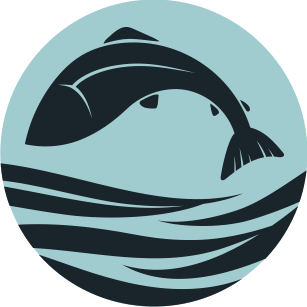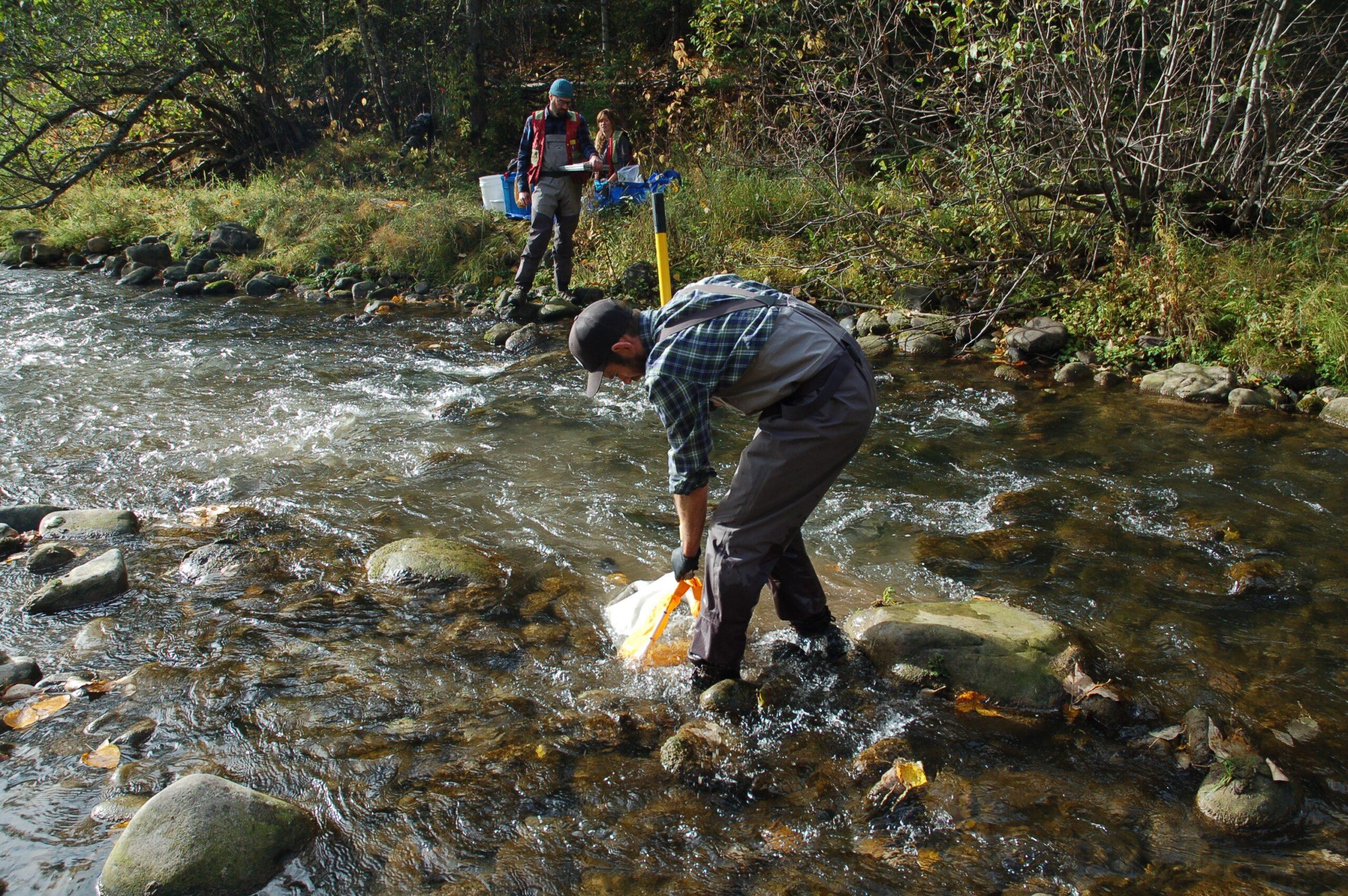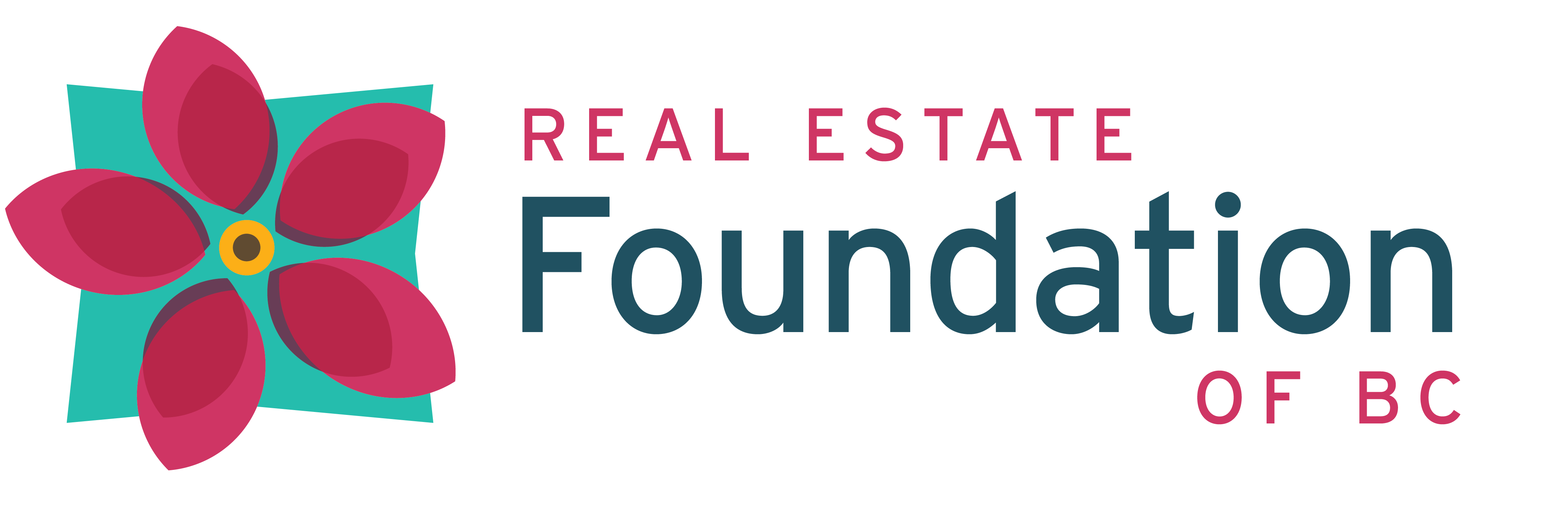Our Water, Our Future | Major Outcomes Report
“Water is critical for us, for all of us. For myself, as an Indigenous person, it takes me back to my roots, my origin. We have a destiny that was here in the hearts and minds of people before us, generations before us that connect us back to the land and the water. Indigenous law in most cases describes a relationship of gratitude, respect and responsibility for air, land, water, and species that are gifts through creation to help sustain all life. It is exciting to see the outcomes from the work of the Healthy Watersheds Initiative project teams and it is inspiring to see young people who are leading the way and are making a difference in their watersheds.”
Mavis Underwood, Chair, Healthy Watersheds Initiative Indigenous Leaders Advisory Circle
This week the Healthy Watersheds Initiative (HWI) team celebrated the release of the HWI Major Outcomes Report, Our Water, Our Future, which captures the extensive impacts, learnings, and insights from project teams who are addressing critical water security needs in communities across BC.
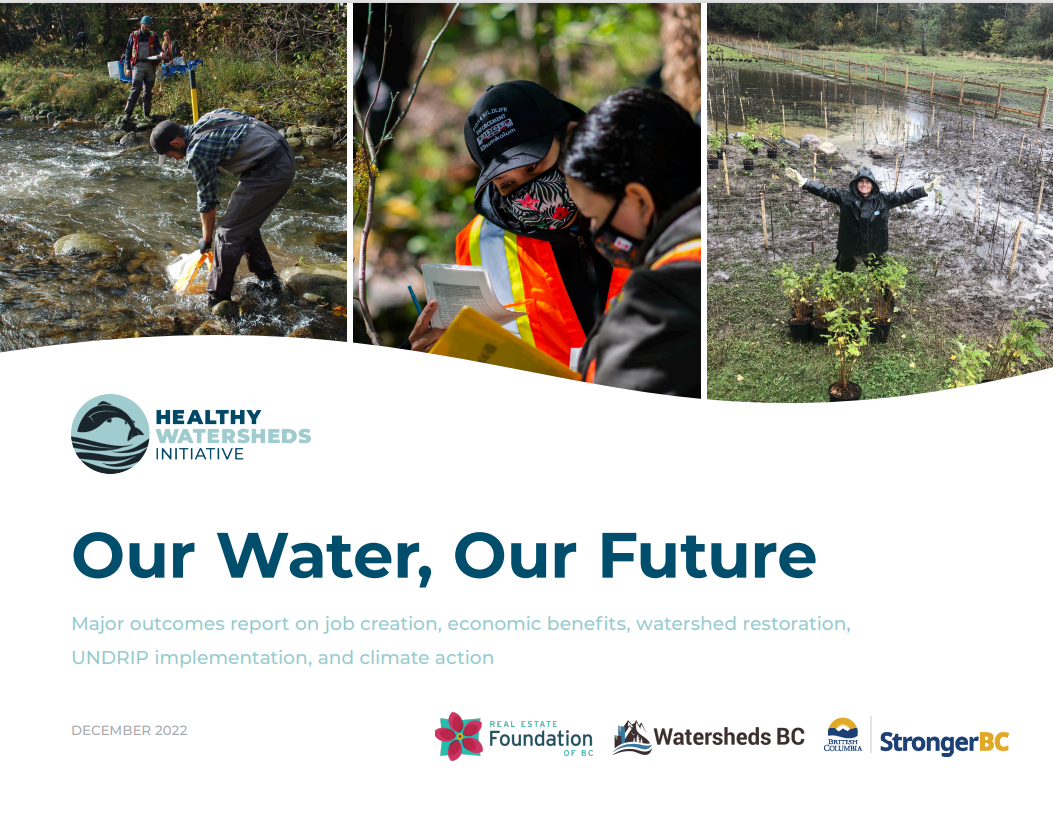
Findings and outcomes in this report are based primarily on qualitative and quantitative data and analysis generated through HWI project reporting from 49 of the 61 HWI funded projects who completed their project work and reporting between January 2021 and June 2022.
The report documents the successes and challenges of a significant investment in watershed conservation and restoration in British Columbia during the coronavirus pandemic of 2021 and 2022. As global warming accelerates – resulting in record droughts, wildfires, and flooding disasters – actions taken to conserve and renew watersheds are essential. HWI projects demonstrate a strong path forward for investing in nature-based infrastructure to rebuild community resilience. With the majority of projects supporting the exercise of Indigenous rights and incorporating Indigenous knowledge in planning, they are also advancing important commitments to the United Nations Declaration on the Rights of Indigenous People (UNDRIP) and providing inspiring examples of what is possible through strong investments in watershed conservation and restoration, community leadership, and relationship building.
“We are deeply grateful to all the project teams whose work and insights made it possible for us to see and understand roles, responsibilities, and actions that are critical to UNDRIP commitments, economic recovery, climate action, and community and watershed health. We are thankful to our Indigenous Leaders Advisory Circle, the B.C. government and community partners for working with us to guide, implement and share in this work, which has resulted in incredible learning, impact and returns from one of the most significant investments in water security in decades.”
Leanne Sexsmith, Co-Director, Healthy Watersheds initiative, and Zita Botelho, Co-Director, Healthy Watersheds Initiative
Creating Jobs & Supporting Economies
As part of the Province of BC’s economic response to COVID-19, the Healthy Watersheds Initiative was designed to create jobs and provide training and skills development, particularly for population groups most significantly affected by the pandemic. In addition, HWI projects resulted in many other significant economic benefits, generating overall high returns on investment. Data from the 49 projects in the major outcomes sample show that over 1200 jobs have been created or supported with HWI funding. In addition to direct job creation, project teams reported strong spinoff benefits for local contractors, service providers, and businesses – generating high returns on investment overall. Cross-sector economic benefits were cited for fisheries, forestry, agriculture, mining, and recreation. Municipal and provincial cost savings – through increased climate resilience, improved water quality and supply, and social, cultural, and health benefits – were also identified.
“The most important economic impact and outcome on the local economy has been the employment of a total of 14 local community members, five non-target demographic and nine target demographic. By helping to restore salmon watersheds within the area of Clayoquot Sound, the entire ecosystem benefits and eventually contributes to the health of a sustainable local community.”
Ahousaht Nation, Anderson Creek Restoration
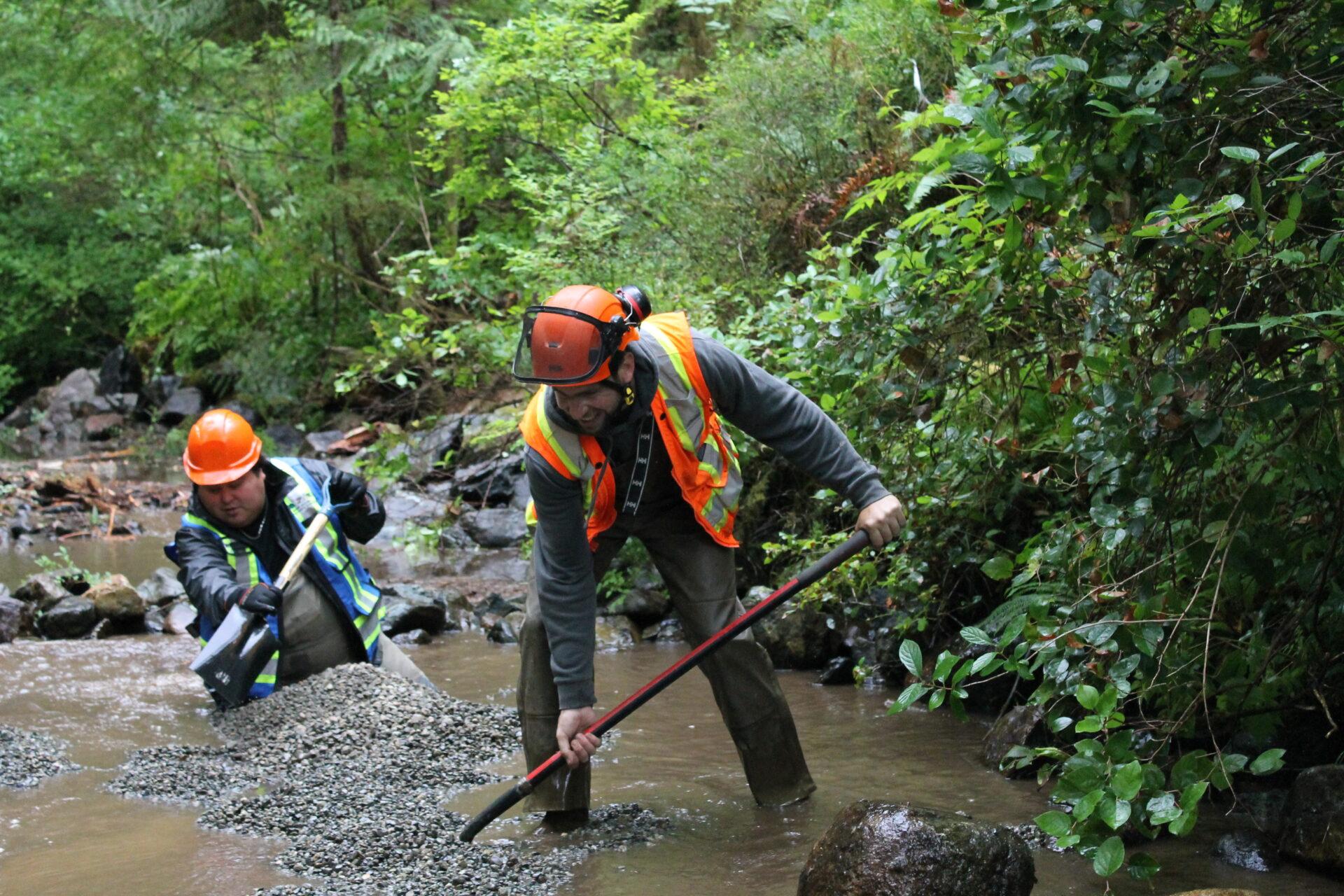
Watershed Restoration and Environmental Benefits
Funding delivered through the Healthy Watersheds Initiative supported community-driven watershed conservation and restoration at over 200 project locations and thousands of sites.
All 49 HWI teams in the sample undertook environmental actions to support the health of affected watersheds and help provide safe, clean water for drinking, growing food, sustaining communities and culture, and powering local economies.
“The learning, relationship-building, economic, and ecological benefits that have resulted over the past two years have surpassed our expectations. Throughout, partners have strived to put principles of people first, meaningful reconciliation, equity, climate action, and economic strength into meaningful practice.”
Mark Gifford, CEO, Real Estate Foundation of BC
Projects reported renewed species populations (particularly salmon) and biodiversity at many sites. Many environmental benefits have been observed within the short timeframe and scope of the HWI project; however, project teams note that long term positive impacts on habitat and species at larger scales take time to resource, test/demonstrate, and document. Long-term support, commitments, and coordination are needed to build watershed and ecosystem resilience and security.
“Community health, local business and sectors including mining, agriculture, and recreation, all rely upon a predictable water supply. This project is bringing to light the need for a collaborative approach to collect information needed for long-term local economic benefits all supported by healthy watersheds[…]This project has demonstrated transition possibilities towards a green economy.”
Living Lakes Canada, Columbia Basin Water Hub
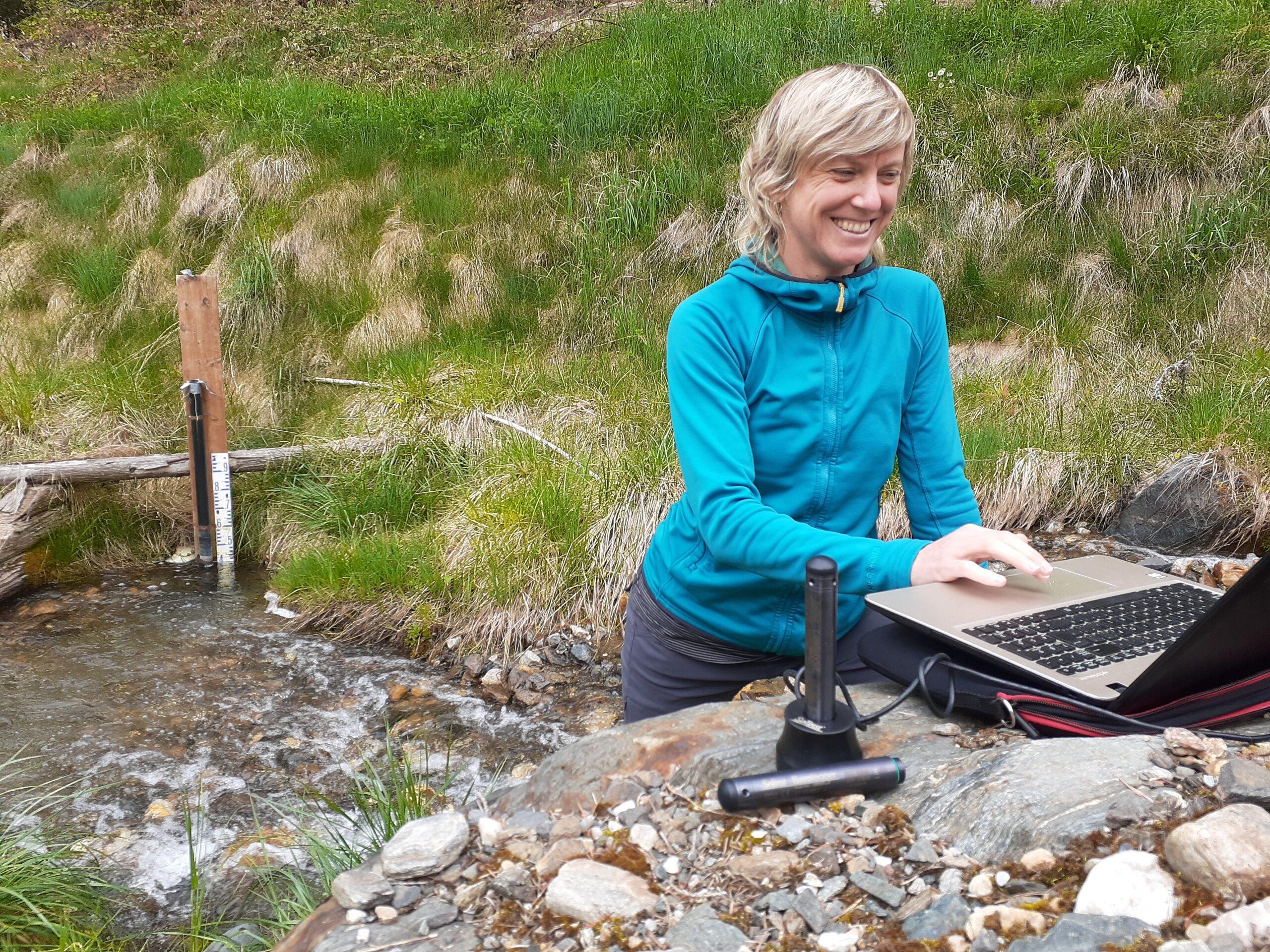
(Photo: Living Lakes Canada)
“We are just five years into a project that will restore 517 hectares of floodplains, streams and rivers, and the sandhill cranes and blue herons have already returned, Western painted turtles have turned up, and brown bats have begun to patrol the skies. In the wake of last year’s devastating floods, the restoration of the Yaqan Nukiy Wetland is helping nature do its job again. The floodplain is now able to provide natural flood protection by absorbing freshets, the sudden, large volume of water created by heavy rain or snow melt.”
Project Leads, Yaqan Nukiy Wetland Restoration Project, Lower Kootenay Band and B.C. Wildlife Federation
Advancing UNDRIP
HWI-funded work helped advance UNDRIP implementation and supported reconciliation, as documented in the comprehensive evaluation report by Tara Marsden, Naxginkw / Senior Indigenous Advisor.
You can read the full report here: United Nations Declaration on the Rights of Indigenous People: Healthy Watersheds Initiative Evaluation Framework and Report
As a complement to the UNDRIP evaluation report, the Major Outcomes Report focuses on UNDRIP outcomes and impacts drawn from analysis of HWI project team’s final reports, with the distinct experiences and perspectives of Indigenous and non-Indigenous led project teams shared.
“What I feel our greatest accomplishment in advancing UNDRIP has been our ability to stand firmly within our rights to our traditional lands. Historically when Indigenous peoples/ organizations have had “partnerships” with non-Indigenous sectors, more often than not Indigenous voices were not heard or taken seriously. This project has proven that it is possible to achieve the desired outcomes through self-determination.”
Stqeeye’ Learning Society, Xwaaqw’um Village Watershed Restoration

Download the full report for more details on how this historic investment in watersheds is creating positive change for ecosystems, communities, and economies.
News Release: https://www.refbc.com/news/healthy-watersheds-outcomes
